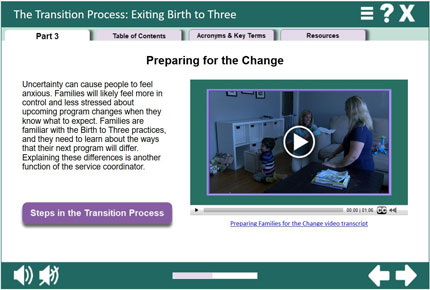This module was created for the Connecticut Office of Early Childhood by the Center for Early Childhood Education at Eastern Connecticut State University in collaboration with the Charter Oak State College.
This training module was supported by the Preschool Development Grant Birth through Five Initiative (PDG B-5), Grant Number CFDA 93.434 from the Office of Child Care, Administration for Children and Families, U.S. Department of Health and Human Services. Its contents are solely the responsibility of the authors and do not necessarily represent the official views of the Office of Child Care, the Administration for Children and Families, or the U.S. Department of Health and Human Services.


